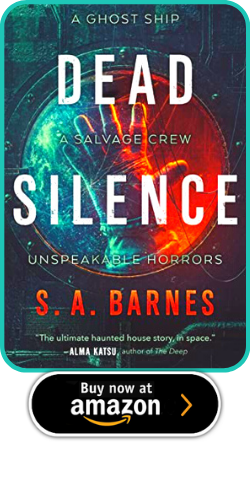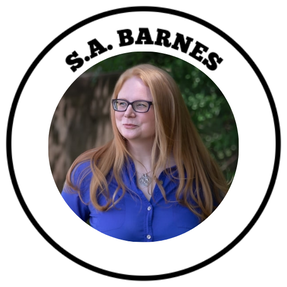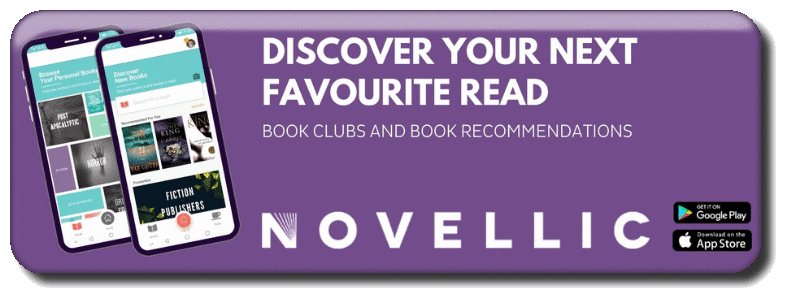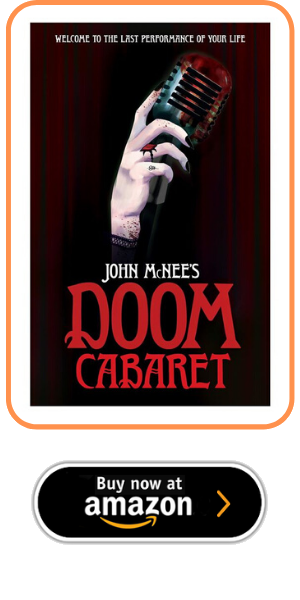|
Someone asked me recently in an interview, “Why horror?” A fair question. Over the last decade, I’ve written in a variety of genres from young adult science fiction to adult romance. “Because I’ve been afraid my whole life,” was my rather glib on-the-spot response. But, glib or not, it happens to be true. I wasn’t officially diagnosed with an anxiety disorder—Generalized Anxiety Disorder with OCD—until I was in my early thirties. However, it’s been part of my life since my early teens or possibly before. One of my earliest memories is searching my neck for strange bumps or lumps—my beloved grandfather had just been diagnosed with cancer and I was convinced I had it as well. For whatever reason, my anxiety tends to present itself as worry about diseases. For years, before I started therapy, I couldn’t watch or read stories about illnesses—no matter how rare or uncommon—without obsessing over my potential symptoms. If there was a Purple Freckle Syndrome, I could find you a freckle on my skin that matched the description. And then I would spend hours obsessively symptom-checking in a sweaty anxiety spiral, imagining my eventual diagnosis and demise with Purple Freckle Syndrome. In school, I was the shy bookish kid—I read Star Trek novels in class—and I was frequently the new student in class, thanks to my family’s frequent moves. In high school, I would script interactions in my head, coming up with conversational prompts and imagining the resulting scenarios along with my response(s), so that I would never feel caught off guard or out of control. Hello, OCD! In college, one of my best friends would gently tease me about my need to have certain shirts on certain hangers. Logically, I knew that that flannel on that hanger wouldn’t have any bearing on my day being good or bad. But it felt wrong. Like, that tight feeling in your chest when you think you left the house with the door unlocked or the stove on. Just inviting destruction and danger. It was easier to put the shirt on the right hanger. Every time. As you can imagine, uncontrolled and endless anxiety at that level can take over your life. Clinical anxiety is not something you can dismiss by “thinking positively” or “focusing on something else.” Everyone has moments of anxiousness for various reasons—health concerns, job interviews, relationship issues—but one of the ways in which Generalized Anxiety Disorder sucks is that it doesn’t have a root cause. Anxiety because of a job interview goes away when the interview is done. GAD is just…there. Always. When I discovered horror novels in middle school, I couldn’t get enough. Christopher Pike (Remember Me and Weekend), Steven Charles (the Private School series), V.C. Andrews (Flowers in the Attic and My Sweet Audrina), Dean Koontz (Strangers) and then, of course, Stephen King. I read It over and over again. I’m fairly sure I was drawn—am still drawn—to horror because it made sense of my world. I could relate to the characters who were terrified and out of their depths. Their formerly safe, familiar world had become one full of dangers they couldn’t escape and didn’t know how to handle. But, unlike in real life, there was a concrete reason to be afraid. These characters would eventually determine the source of their terror and attempt to stop it. And one way or another, their fear would end. They would have closure—frankly, in most of the books I liked, they would triumph over the evil thing/person trying to hurt them. I loved that. It’s taken me years—and professional help—to see that while anxiety has certainly made my life harder, it has also had a huge influence on my writing in a mostly positive way. My obsessive focus on detail is an advantage when it comes to describing scenes. All that advance scripting I did in high school? Great practice for dialogue. That part of the book where the situation just gets worse and worse for our intrepid hero or heroine? Worst-Case-Scenario Girl to the rescue! But primarily, I think it’s led me to focus on characters who struggle with their own fears, characters who may not entirely trust themselves. In Dead Silence, Claire Kovalik, reluctant team leader of the LINA, struggles with her past trauma and she doesn’t trust her own perceptions of reality. She sees things—ghosts or hallucinations, manifestations of her own guilt—and she can’t tell which they are or what to do about them. I know that feeling. I know what it’s like to have a doctor ask about symptoms and not be able to accurately describe my own condition because I can’t tell if what I’m feeling is “real” or caused by my anxiety and obsessiveness. (Not that anxiety-induced symptoms aren’t real, but they certainly make it more difficult to accurately report what’s happening. Has that mole changed shape or color? Maybe…but I’ve also been poking at it for three weeks.) Because of my anxiety, I have trouble telling when a situation is worth worrying about. Which, basically, translates to being unable to trust my own perceptions. I love writing about an unreliable narrator because, well, I have experience with being one. I find writing about fear and uncontrollable situations therapeutic, in a way, because it makes me feel less alone. So, why horror? Because, in a small but very real way, it’s what I know. ______ Dead Silence by S.A. Barnes will be available from Nightfire Books in hardcover, eBook, and audio digital download on January 25, 2022. Dead Silence |
Archives
April 2023
|










 RSS Feed
RSS Feed

